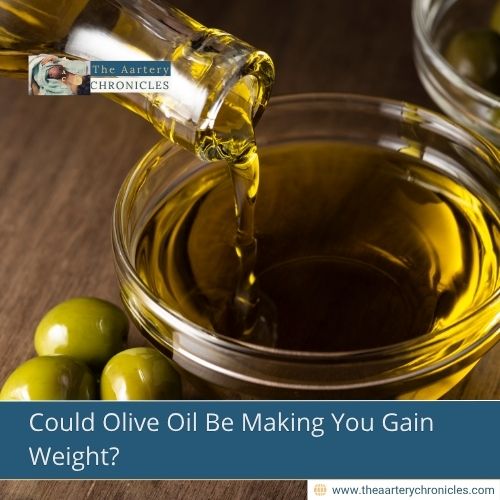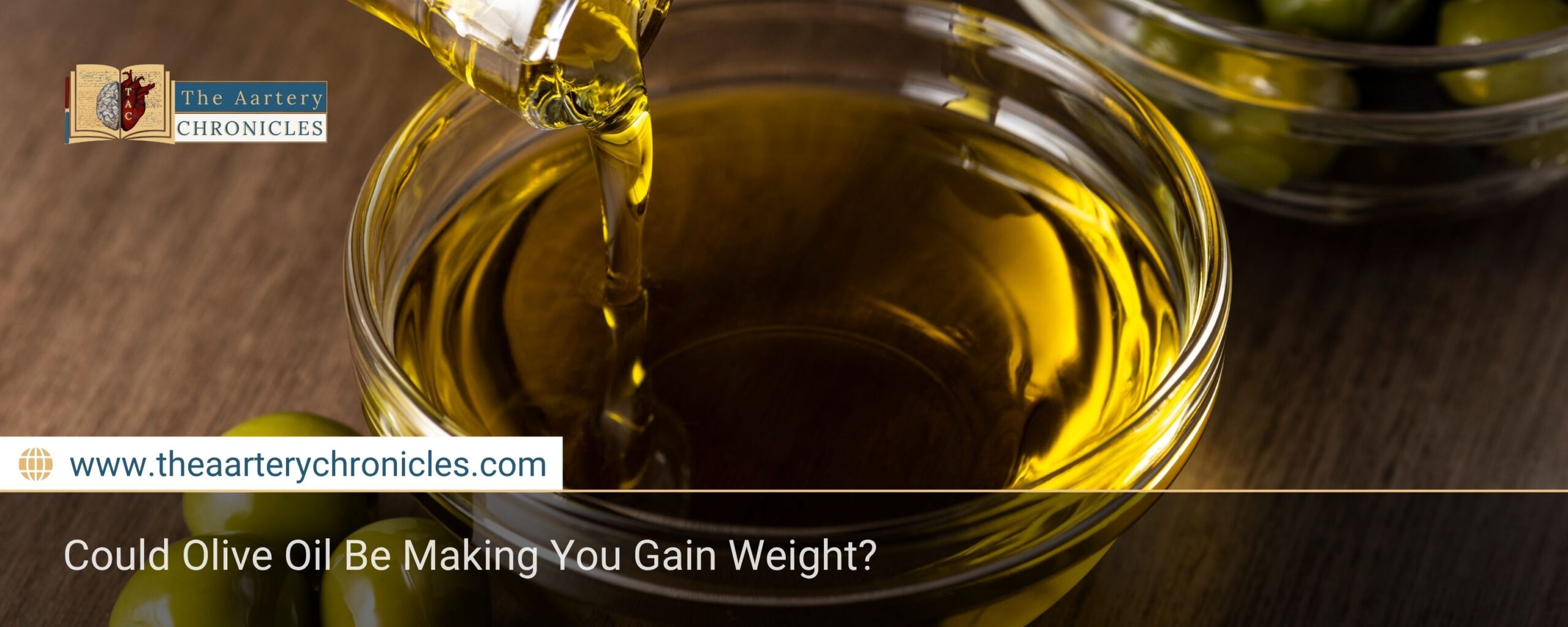

Could Olive Oil Be Making You Gain Weight?
For decades, olive oil has been celebrated as one of the healthiest fats, known for its heart-friendly and anti-inflammatory benefits. But a new study is challenging that belief, revealing that excessive consumption of olive oil may increase the risk of obesity.
What the Research Found
The research, newly featured in the journal Cell Reports, centered on oleic acid the primary type of fatty acid found in olive oil. Researchers found that when consumed in high amounts, oleic acid can stimulate the body to produce more fat cells ultimately increasing the risk of weight gain.
According to the research team, a high-fat diet rich in oleic acid led to more fat cell growth in lab animals than diets rich in other common fats, such as those found in coconut oil, peanut oil, and even lard.
How Does Oleic Acid Affect the Body?
Oleic acid is a monounsaturated fat, which has traditionally been linked to health benefits. However, this study found that at high levels, oleic acid activates a protein called AKT2 and suppresses another protein called LXR, both of which play roles in how the body forms fat cells.
This imbalance triggers immature cells to become fat cells faster, increasing the body’s ability to store fat. This disruption causes undeveloped cells to convert into fat cells more rapidly, enhancing the body’s capacity to store excess fat.
Not All Fats Are Equal
Dr. Michael Rudolph, a faculty member in biochemistry and physiology at the University of Oklahoma College of Medicine, directed the research. Discussing the results, he shared his insights that :
“We wanted to know whether simply eating a high-fat diet leads to obesity, or whether the specific types of fat in the diet matter. It turns out, certain fatty acids trigger stronger biological responses than others.”
His team fed mice diets high in different fats from olive oil to milk fat and only oleic acid significantly increased the number of fat-forming cells.
Fat Cells as “Storage Units”
Dr. Rudolph explains the findings with a helpful analogy:
“Fat cells are like storage units. When the body produces more of them in response to oleic acid, it can store more nutrients than it needs. Over time, this leads to weight gain and potentially heart disease or diabetes if unchecked.”
Should You Stop Using Olive Oil? Not Necessarily
Importantly, the study does not suggest eliminating olive oil. Olive oil still offers proven benefits, including anti-inflammatory effects and protection for the brain, liver, and kidneys, as shown in earlier research published in the National Library of Medicine.
The key is moderation.
While low-to-moderate levels of oleic acid may be helpful, consistently high levels especially from overeating or using olive oil excessively can increase health risks, particularly for those with obesity or heart disease risk factors.
Use a Variety of Healthy Fats
Experts recommend a balanced approach to fat consumption:
- Use a variety of oils (such as flaxseed, avocado, or walnut oil)
- Watch your overall fat intake
- Focus on whole foods over processed ones
- Combine healthy fats with an active lifestyle and balanced diet
Conclusion
This new study doesn’t mean olive oil is “bad” but it’s a reminder that even healthy foods can become harmful in excess. Paying attention to both the type and amount of fat you consume is essential for long-term health.
As always, consult with a healthcare provider or registered dietitian for personalized advice.
Source: Inputs from various media Sources

Priya Bairagi
Reviewed by Dr Aarti Nehra (MBBS, MMST)
I’m a pharmacist with a strong background in health sciences. I hold a BSc from Delhi University and a pharmacy degree from PDM University. I write articles and daily health news while interviewing doctors to bring you the latest insights. In my free time, you’ll find me at the gym or lost in a sci-fi novel.








